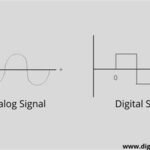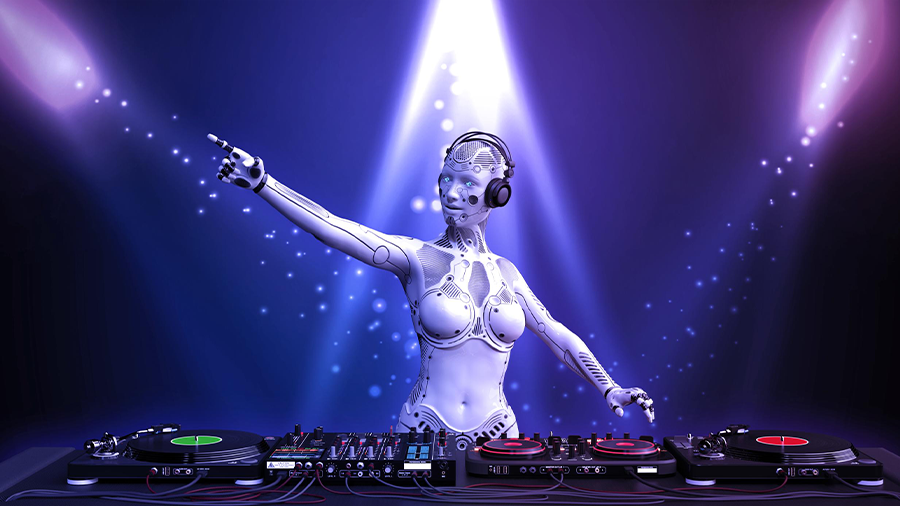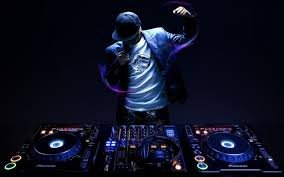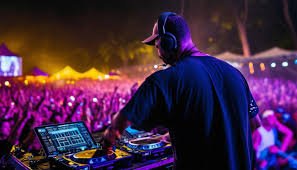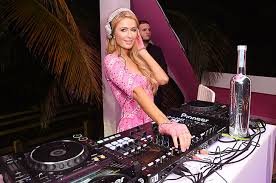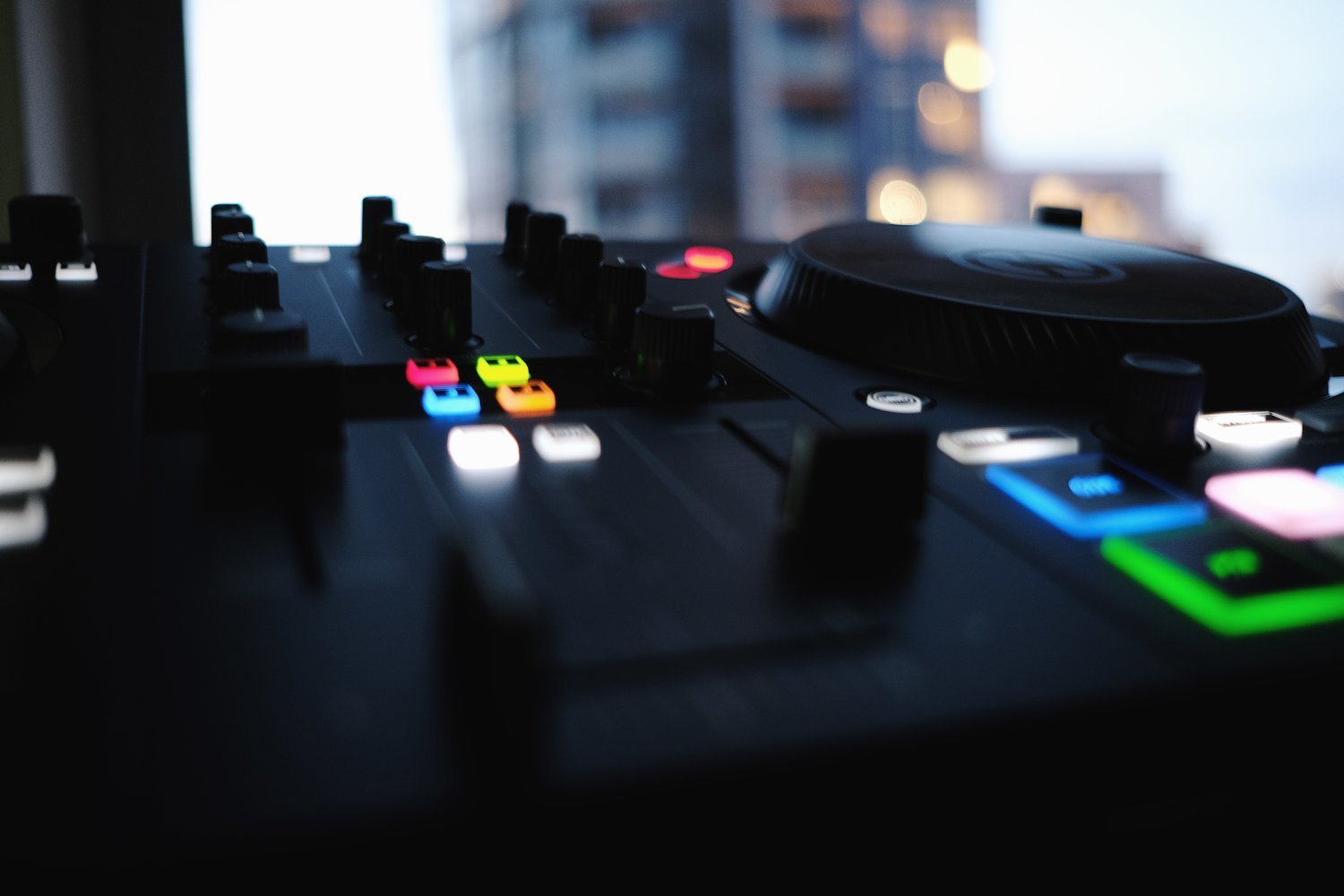DJs have become an integral part of the music landscape, not only as performers but also as innovators and trendsetters. From their roots in the underground dance music scene to becoming mainstream icons, DJs have significantly shaped the evolution of modern music. Their influence extends far beyond the decks, impacting genres, music production, live performances, and pop culture. In this article, we will explore the many ways in which DJs have impacted modern music and continue to define the future of sound.
1. Pioneering New Genres and Sounds
One of the most significant contributions DJs have made to modern music is the creation and popularization of new genres. DJs have long been at the forefront of experimenting with different sounds, blending influences from a variety of musical styles to create fresh, exciting genres.
Electronic Dance Music (EDM)
- Electronic dance music, or EDM, has grown to become one of the most dominant forces in the global music industry, thanks in large part to DJs.
- DJs have helped shape EDM subgenres like progressive house, trance, dubstep, and techno, each with its own unique sound and dedicated fanbase.
- With their ability to manipulate beats, rhythms, and effects in real-time, DJs have pushed the boundaries of music production, creating new soundscapes and experimental sounds that were previously unheard.
The Rise of Hip-Hop and Turntablism
- DJs were also instrumental in the rise of hip-hop culture, with pioneering figures like Kool Herc, Grandmaster Flash, and DJ Premier shaping the sound of the genre.
- Turntablism, the art of manipulating vinyl records, has become a defining feature of hip-hop, with DJs using scratching, beat juggling, and other techniques to create unique and dynamic sounds.
- Through their creative use of technology and technique, DJs have played a key role in the evolution of both hip-hop and modern electronic music.
2. Shaping Music Production
DJs have not only been performers but also key players in music production. Many DJs are also producers who create the tracks they play in their sets, influencing the way music is made and consumed.
Sample-Based Production
- DJs introduced the use of sampling into modern music production, particularly within hip-hop and electronic music. By taking snippets of existing tracks and reworking them into new compositions, DJs have revolutionized how music is created.
- This approach has led to the development of an entire subculture of remixing and mashups, where DJs take popular songs and transform them into something fresh, adding their own signature sound.
Studio Innovations
- In the studio, DJs use advanced digital audio workstations (DAWs) and production software to craft complex beats, loops, and effects that are then incorporated into their live sets. This fusion of live performance and production has given rise to a new era of music-making where DJs blur the line between composer, performer, and producer.
- The widespread use of MIDI controllers, drum machines, and synthesizers in DJ setups has revolutionized how electronic music is produced, allowing for more intricate and layered sound designs.
3. Live Performances and Festivals
DJs have transformed the live performance experience, making it an immersive and interactive event that connects artists and audiences in unique ways. Their ability to read the crowd and create a dynamic atmosphere has redefined the concept of a live music show.
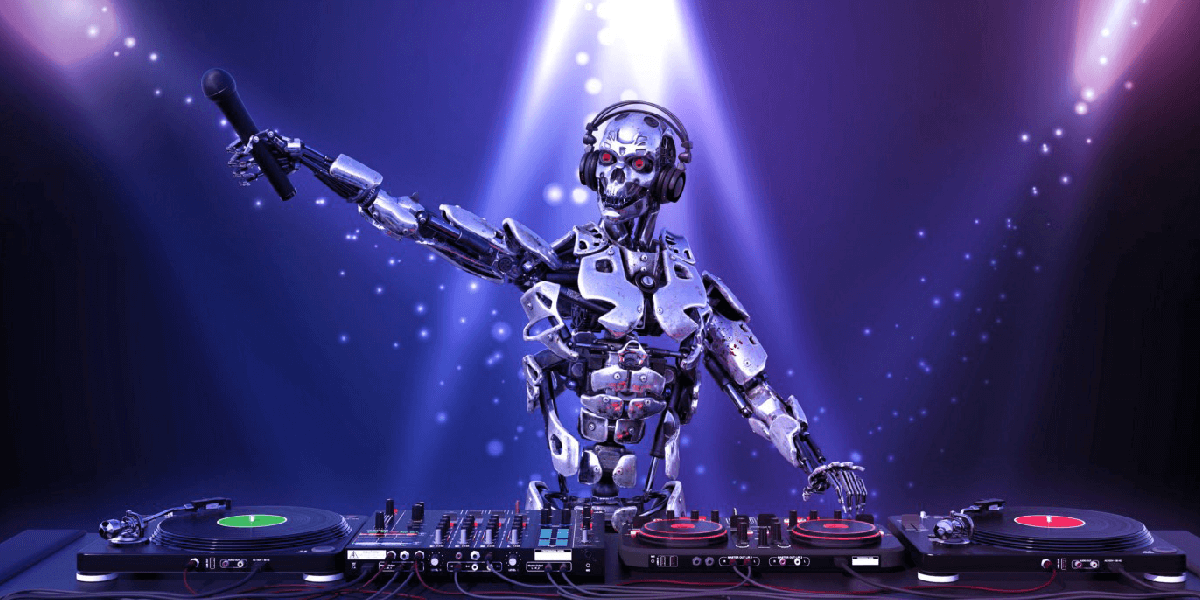
Festival Culture
- Music festivals, such as Tomorrowland, Electric Daisy Carnival, and Ultra Music Festival, have become major events centered around DJ performances. These festivals attract millions of fans from around the world, providing a platform for DJs to showcase their skills and creativity on a massive scale.
- The rise of EDM festivals has brought electronic music into the mainstream, turning DJs into global superstars and making live DJ performances a key part of the music experience.
Crowd Interaction and Energy
- Unlike traditional musicians who perform on stage with set songs, DJs often craft their sets on the fly, reading the crowd’s energy and adjusting their track selections in real-time.
- This dynamic interaction between DJ and audience creates a shared experience that is unlike any other. DJs have the unique ability to control the mood of the crowd and drive the energy of the entire venue, making their performances highly engaging and unpredictable.
4. Influencing Popular Music
DJs have also had a lasting impact on popular music by collaborating with mainstream artists and incorporating their influence into chart-topping tracks. Through remixes, collaborations, and genre-blending, DJs have shaped the sound of modern pop music.
Remixes and Crossovers
- One of the most significant ways DJs influence popular music is through remixes. When a DJ reworks a popular track, they bring their own unique sound to the song, often turning it into a club anthem or radio hit.
- DJ remixes of pop songs have helped to popularize dance music across broader audiences, and many mainstream artists now actively seek DJ collaborations to add electronic elements to their tracks.
Crossover Hits
- Many chart-topping songs feature DJ-produced beats, such as David Guetta’s work with artists like Sia and Nicki Minaj, or Calvin Harris’ collaborations with Rihanna and Dua Lipa. These crossovers have made dance music more accessible to pop audiences, further cementing the role of DJs in mainstream music.
- As a result, the sound of DJs is now deeply embedded in the global music scene, influencing not only the club and festival circuits but also top 40 radio and streaming playlists.
5. Pop Culture and DJ Lifestyle
The influence of DJs extends far beyond the music itself. DJs have helped to shape trends in fashion, lifestyle, and social media, becoming cultural icons in the process.
DJ as a Lifestyle
- The rise of DJ culture has given birth to a new kind of celebrity—one who is known not only for their musical talent but also for their unique lifestyle, fashion choices, and public persona.
- Many DJs have turned their brand into a lucrative business, leveraging social media, clothing lines, and personal appearances to cultivate a following that extends well beyond the music scene.
Social Media and Streaming
- With the advent of platforms like SoundCloud, YouTube, and Spotify, DJs can now share their mixes and productions with a global audience. This has democratized music and given DJs the ability to reach fans all over the world.
- Social media has also allowed DJs to connect directly with their fans, offering behind-the-scenes glimpses of their lives and careers, and strengthening the bond between artist and audience.
Conclusion
DJs have had an undeniable impact on modern music, from pioneering new genres to influencing music production, live performances, and pop culture. Their creative use of technology, ability to read and engage with the crowd, and unique approach to music-making have all contributed to shaping the sounds and trends that define today’s musical landscape. As DJs continue to push boundaries and evolve, their influence on music and culture will undoubtedly continue to grow, ensuring their place at the forefront of modern music.






